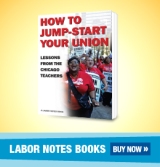The Selling of Public Services. By Seth Sandronsky
 Do failed policy proposals from public education officials enjoy an afterlife when their creators depart Washington for the private sector? This is no academic question. In fact, the career arcs of two former federal policymakers may well have foreshadowed the life-or-death clash over the accreditation of San Francisco City College (CCSF), one of California’s 112 community colleges. The state is home to about 10 percent of America’s 1,100 two-year colleges.
Do failed policy proposals from public education officials enjoy an afterlife when their creators depart Washington for the private sector? This is no academic question. In fact, the career arcs of two former federal policymakers may well have foreshadowed the life-or-death clash over the accreditation of San Francisco City College (CCSF), one of California’s 112 community colleges. The state is home to about 10 percent of America’s 1,100 two-year colleges.
As San Francisco Superior Court Judge Curtis Karnow’s ruling on the Accrediting Commission for Community and Junior College’s bid to decertify CCSF draws near, the story of Margaret Spellings becomes instructive. Spellings, who was George W. Bush’s second-term Secretary of Education, commissioned a controversial 2006 report called “A Test of Leadership: Charting the Future of U.S. Higher Education.”
The report’s language was very much in tune with the pro-business Bush zeitgeist. The commission’s chairman was Charles Miller, a private investor who was joined by Nicholas Donofrio, the executive vice president of IBM Corp., and by James J. Duderstadt, the corporate vice president for Microsoft Corp. Their report predicted disaster unless colleges began protecting their “market share” by preparing students for the “global marketplace.” Continue reading
Filed under: Busting the union busters, Education Reform, Labor History, Politics | Tagged: accountability, California, Education, San Francisco Community Colleges, U.S. Chamber | Leave a comment »









